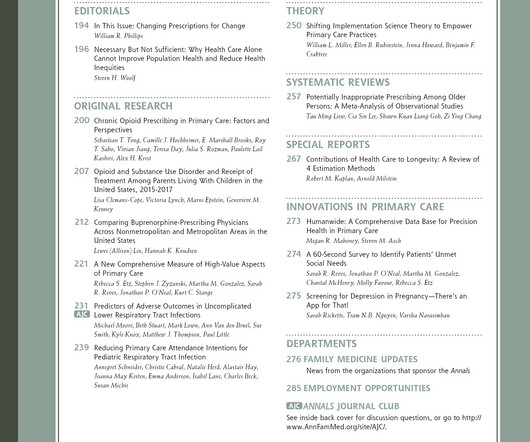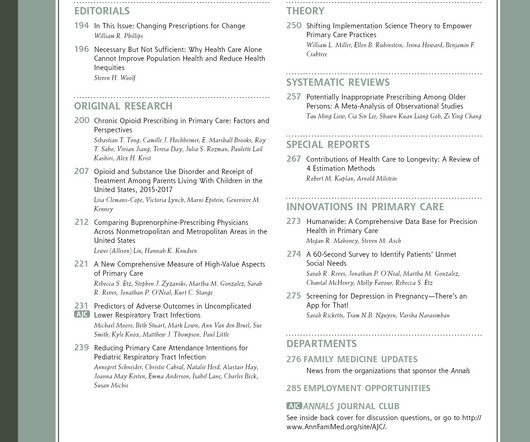Development and Testing of an Interoperable e-care Plan for Person-Centered Care Planning for Multiple Chronic Conditions [Multimorbidity]
Annals of Family Medicine
NOVEMBER 20, 2024
Background: Multiple chronic conditions (MCC) the most common condition seen in practice are present in 33% of adults and 80% of individuals age > 65. The emergence of FIHR enables the development of interoperable apps to facilitate comprehensive, shared care planning.











Let's personalize your content